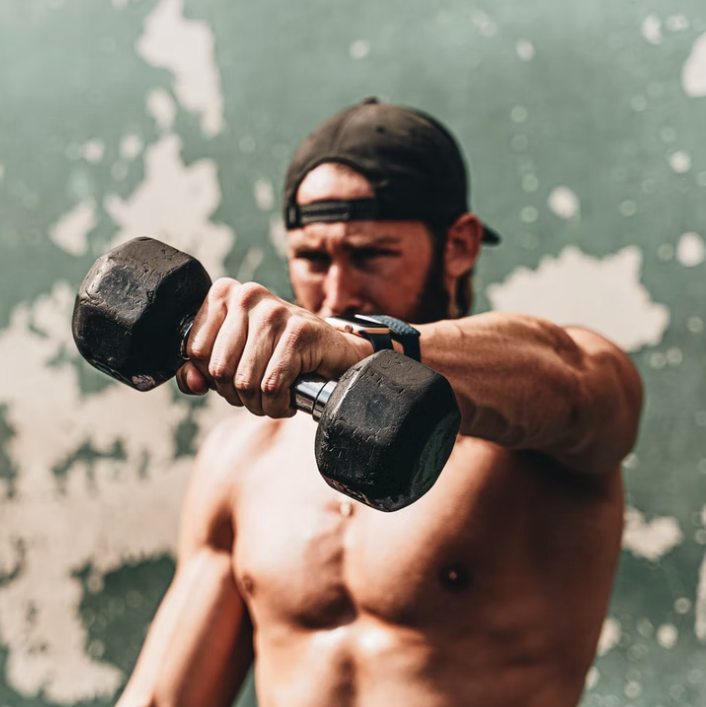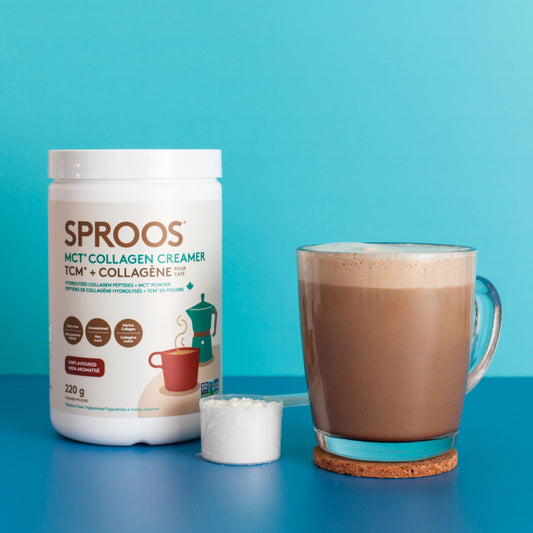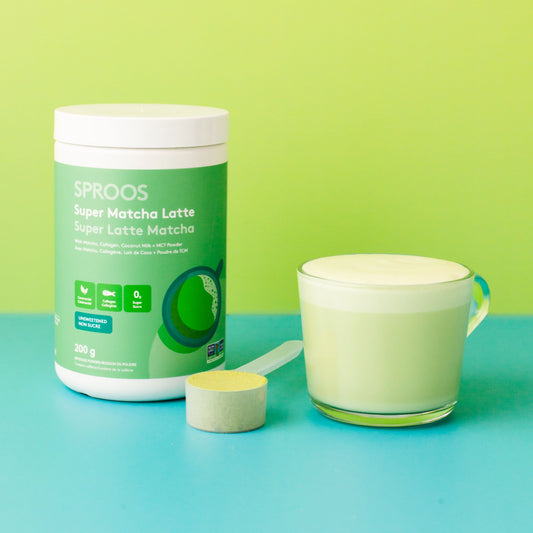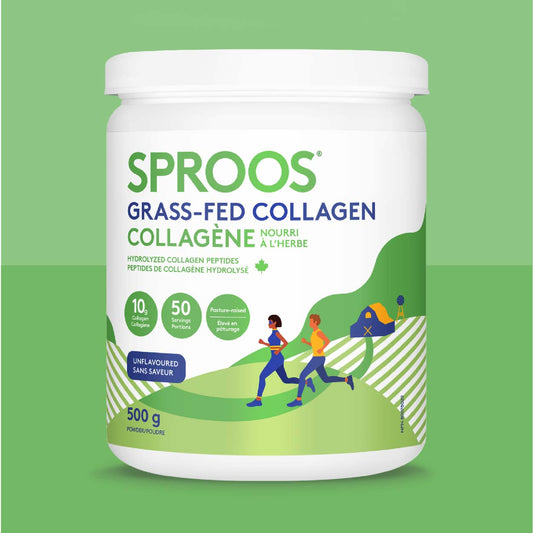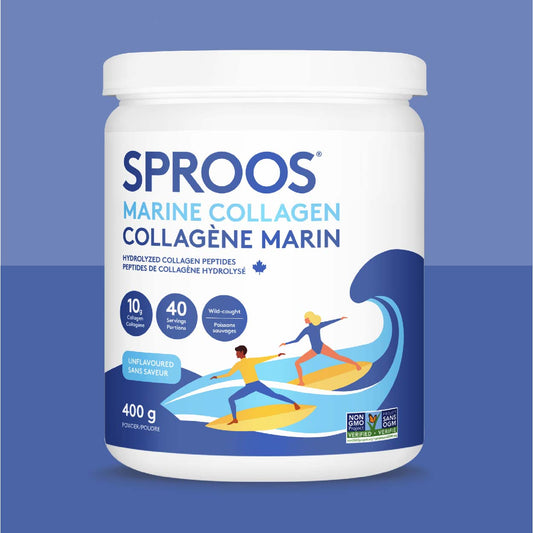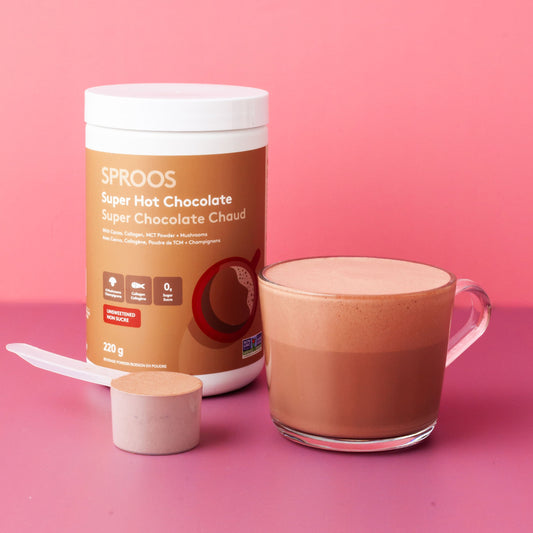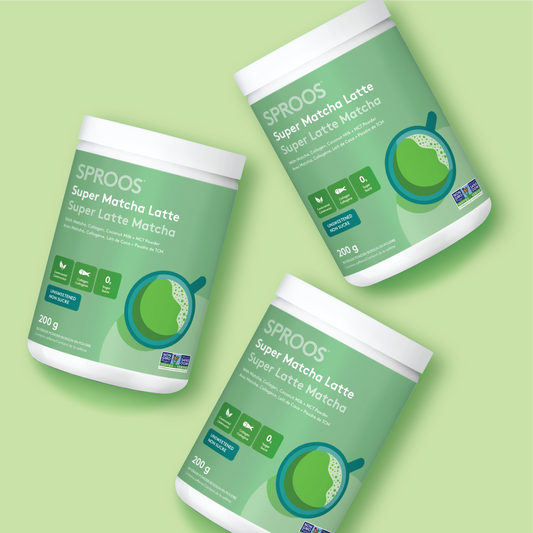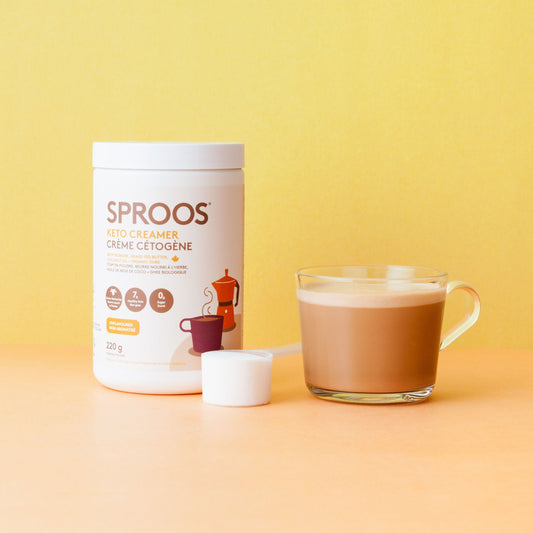Although collagen is often associated with skin health and appearance, the benefits are much beyond that. Plus, who doesn’t want to have youthful, glowing skin?
If you aren’t sure whether or not collagen is for you, think again. Collagen can help to combat all sorts of signs of aging, not just with your skin. Implementing collagen into your daily routine can help with muscle recovery, strength, reduce joint pain and promote healthy joints and even help with gut health.
So, the short answer? Yes, men should take collagen supplements, barring any dietary restrictions or allergies.
And here’s why.
The Importance of Collagen
Collagen is a structural protein found in the body, and the most abundant one at that. It provides strength and structure for our connective tissue. Collagen is found all throughout the body such as you skin, blood vessels, muscles, tendons, ligaments, bones and digestive system.
Now, you may have heard the not-so-good news – our bodies reach peak collagen production in our early twenties. After that collagen production in our bodies begins to decline. By the time we reach 60, our collagen production has fallen by 50%. This decline is often combined with these typical signs of aging: wrinkles and fine lines in the skin, joint pain, slower recovery after injury or exercise, decreased bone density and thinning hair.
The good news? Science shows that collagen supplements can help to mitigate these issues. Even if your joints aren’t bothering you, by taking collagen now, your body will thank you in the long run.
Still not convinced? We’ll let the research speak for itself.
5 Reasons Men Should Supplement Collagen
1. Better Workouts and Recovery
Whether you enjoy lifting weights at the gym, going on long bike rides or taking morning walks to get your steps in, collagen can help. When we work out, our bodies undergo many different metabolic processes. This is to ensure that we have enough energy for our workout and to recruit our muscle fibres to do the work. That is why post-workout nutrition is so important. We want to make sure that we are fuelling our bodies with the proper nutrients to recover so that we can recover and workout again.
Studies have shown that consuming protein post-workout helps to repair muscles used during working out. That’s where collagen comes in. Collagen contains arginine, an amino acid that helps to maintain and restore muscle mass.
Collagen also contains another amino acid called glycine. Studies have shown that glycine can help to promote better quality sleep, and we all know how important sleep is for recovery. If you want to learn more about how collagen and sleep are related, we’ve actually written an entire blog post dedicated to that top that you can check out by clicking here.
Lastly, we’ve got to talk about the benefits of collagen to our joints. Collagen is an important part of our connective tissue and is found abundantly in our joints. Unfortunately, as we age, our collagen production decreases resulting in stiff and painful joints. This can hinder our workouts. But science says that supplementing collagen can help. Taking a collagen supplement (such as our Joint Collagen!) promotes the accumulation of collagen peptides in our joints. This can help to maintain joint health, reduce the risk of joint deterioration and help to improve joint pain. Keep moving like you used to!
2. Come Back Stronger from Injury
Injuries can massively impact not just your workouts, but your day-to-day life. While it is important to allow the body to rest and recover following an injury, collagen may help to enhance your recovery.
A systematic review was conducted investigating the effects of collagen supplementation on various joint injuries and joint pain. These studies were conducted on males and females of all ages and varying lifestyles. In general, there was a decrease in joint pain from injuries and increase in mobility when supplementing with collagen compared to those who were not taking a supplement.
Collagen also plays a big role in recovering from muscle injuries. Torn or ruptured muscles (ouch!) require types 1 and 3 collagen. The collagen helps to produce new muscles fibres and create connective scar tissue to recover. Grass-Fed collagen is an excellent source of type 1 and 3 collagen.
As we mentioned, collagen is also very important for maintaining joint health. Health joints equals a lower chance of injury! As such incorporating collagen into your diet not only helps with recovery, but also injury prevention.
3. Increase Muscle Mass and Support Weight Management
Collagen is a protein so it should come as no surprise that it can contribute to muscle growth and help to boost our metabolism. There is lots of evidence that suggests that consuming protein (such as collagen!) can cause a significant rise in muscle protein synthesis. This means that have protein after working out can help grow our muscles, thus increasing muscle mass.
There have been studies showing that supplementing collagen can help with muscle mass. One study looked at supplementing collagen in addition to resistance training in men who were recreationally active. After 12 weeks, those who were taking 15 grams of collagen supplements per day in addition to resistance training had significantly increased muscle mass and fat-free mass compared to those who were resistance training alone. A similar study was conducted in older men with sarcopenia (significant muscle loss). At the end of the 12 weeks, the researchers came to the same conclusions. Taking 15 grams of collagen per day in addition to resistance training resulted in significantly increased muscle mass and fat-free mass compared to those who were only resistance training.
Because collagen can help to increase muscle mass, this in turn can help boost metabolism. Higher muscle mass means and increased basal metabolic rate (BMR). BMR is the number of calories you burn by just sustaining yourself. Increasing muscle mass will increase BMR and thus help to maintain a healthy weight. In addition, supplementing with collagen can help increase feelings of fullness for longer. Maintaining a healthy weight and increasing muscle mass as much as possible is very important as we age to prevent us from getting musculoskeletal degenerative diseases.
4. Support Gut Health
Ever heard of leaky gut syndrome? Yes, it is exactly as it sounds. The cells that comprise the protective barrier of your gut begin to part. This makes space between your gut cells and allows for contents of your gut to pass through and enter the blood stream. It can lead to things like inflammation, low energy, brain fog and more. Collagen is a source of amino acids that help with various gut functions such as immune support and maintaining the integrity of the gut itself!
5. Promote Hair Growth and Youthful Skin
We had to include this one because who doesn’t want a full head of luscious, thick hair and youthful skin? There’s plenty of research suggesting the benefits of collagen for skin, but did you know that collagen can also help with hair growth? That’s right! Collagen is an important part of our hair. It is found in the hair follicle and a decrease in collagen can lead to hair loss.
A study was done in people between the ages of 21 to 75 years old with hair loss. Participants took collagen supplements for about 6 months, and at the end of the trial they researchers found that supplementing with collagen resulted in increased hair growth compared to those taking a placebo. In addition, the participants reported shinier hair and benefits to skin appearance.
The takeaway?
Collagen is for everyone! Adding a collagen supplement into your daily routine can benefit your skin and hair, muscle mass, recovery from injuries and activities and even help promote a healthy gut. And it doesn’t have to be hard! That’s why we like collagen powders. All you have to do is add a scoop of your favourite Sproos collagen powder to a drink of your choice and blend! It really is that easy.
Sources
- Glynis, A. (2012). A Double-blind, Placebo-controlled Study Evaluating the Efficacy of an Oral Supplement in Women with Self-perceived Thinning Hair. The Journal of Clinical and Aesthetic Dermatology, 5(11), 28–34.
- Khatri, M., Naughton, R. J., Clifford, T., Harper, L. D., & Corr, L. (2021). The effects of collagen peptide supplementation on body composition, collagen synthesis, and recovery from joint injury and exercise: A systematic review. Amino Acids, 53(10), 1493–1506.
- Lehto, M., Sims, T. J., & Bailey, A. J. (1985). Skeletal muscle injury—Molecular changes in the collagen during healing. Research in Experimental Medicine, 185(2), 95–106.
- Oertzen-Hagemann, V., Kirmse, M., Eggers, B., Pfeiffer, K., Marcus, K., de Marées, M., & Platen, P. (2019). Effects of 12 Weeks of Hypertrophy Resistance Exercise Training Combined with Collagen Peptide Supplementation on the Skeletal Muscle Proteome in Recreationally Active Men. Nutrients, 11(5), 1072.
- Zdzieblik, D., Oesser, S., Baumstark, M. W., Gollhofer, A., & König, D. (2015). Collagen peptide supplementation in combination with resistance training improves body composition and increases muscle strength in elderly sarcopenic men: A randomised controlled trial. The British Journal of Nutrition, 114(8), 1237–1245.

